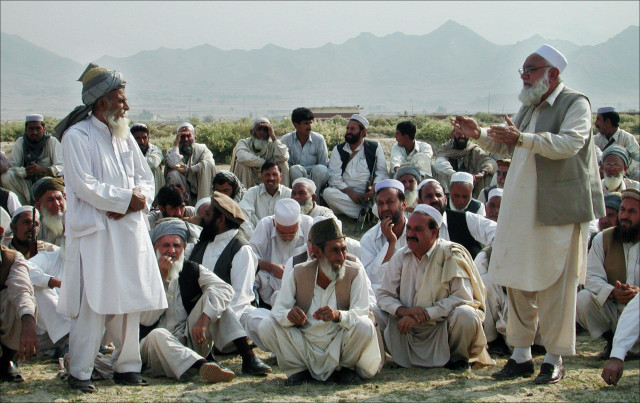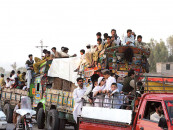Modern justice, policing systems struggle in Bajaur
Locals believe that the traditional Jirga system was much better equipped to promptly deal with regional disputes

Maintaining law and order has been tough row to hoe in the region, following the incorporation of former Federally Administrated Tribal Areas (FATA) into the newly merged districts of Khyber Pakhtunkhwa (K-P).
The most telling example of the situation comes from Bajuar— a district in the province’s Malakand division— which had long remained one of the most peaceful districts before and after the end of militancy.
However, the same region has reported more than 80 murders this year alone, pointing towards a distressing law and order situation and the apparent inefficacy the post-jirga systems in addressing them.
According to Assistant Commissioner (AC) Khar, previously, it was the Assistant Political Agent (APA) who held judicial, policing and administrative powers in the area. “Now, there are distinct courts, police is separate department and the operational capacity of ACs has been cut down to solely dealing with administrative matters,” told Khar. “The new system outlaws Jirgas, which were at least effective in solving local family feuds. Modern-day courts are slow; there are some 2,000 cases still piled in Bajuar court which only has three judges. Jirgas on the other hand imparted quick-justice and were much better at solving local disputes in a timely manner,” he added.
Another issue with the court system that Khar highlighted, was the local dearth of lawyers and legal practitioners. Owing to which, people in the area have had to rely on hiring lawyers from settled districts, who often demand extortionate fees. “Imagine paying Rs 0.2 million for a cases that is heard and decided over a span of two years. Tribesmen don’t have that kind of time,” the AC commented.
As a result of which, the Assistant Commissioner revealed that disputes have piled up and reached an all-time high in the district, rendering the court system incapable of addressing all of them in due time.
Speaking in the same vein, another Bajaur official who requested anonymity, pointed out that the new police system has also remained rather ineffective in the region. This, according to the unnamed official, has to do with the fact that neither the police nor the people here know anything about the Pakistan Penal Code (PPC). “Personnel who have been hired by the ten police stations here don’t know about the law, investigation or traditional policing because they haven’t been trained in the regard. So if a man commits murder he simply escapes to Punjab where it is almost impossible to arrest him. Now the government has decided to introduce Alternate Dispute Resolution System in which both the parties will decide to take their dispute to the DC or AC and his verdict could not be challenged even in the court. People find the court system slow and expensive and they want quick settlement so this will be a good system,” he opined.
Amidst all of this, Bajaur has seen a steep rise criminal activity, especially instances stemming from unsolved property and mining disputes. In addition to that, where every department in the district is answerable to DC or AC, the police continues to be an exception. As a result which, the district still lacks centralised control and locals have been left without a clue on where to turn in case of crime. “They often go to local AC or DC thinking that he will be of any help like the past but from there they are sent to the local police stations for registering a First Information Report. But in cases of crimes like murder, the police here has no investigative training, while culprits have an assortment of loopholes in the new justice system to exploit their way out of,” the official lamented.
On the other hand, Sheikh Jehnazada, a local elder, shared that in the past the political agents collected taxes on their own and had a lot of funds to spend but the new system has left them financially dry. “The traditional Jirga system is still there. But considering that police is ineffective here, the administration needs to own traditional system by backing it completely. Whatever it was, it was still better than what we have now,” the elder told The Express Tribune.
Published in The Express Tribune, April 28th, 2021.



















COMMENTS
Comments are moderated and generally will be posted if they are on-topic and not abusive.
For more information, please see our Comments FAQ